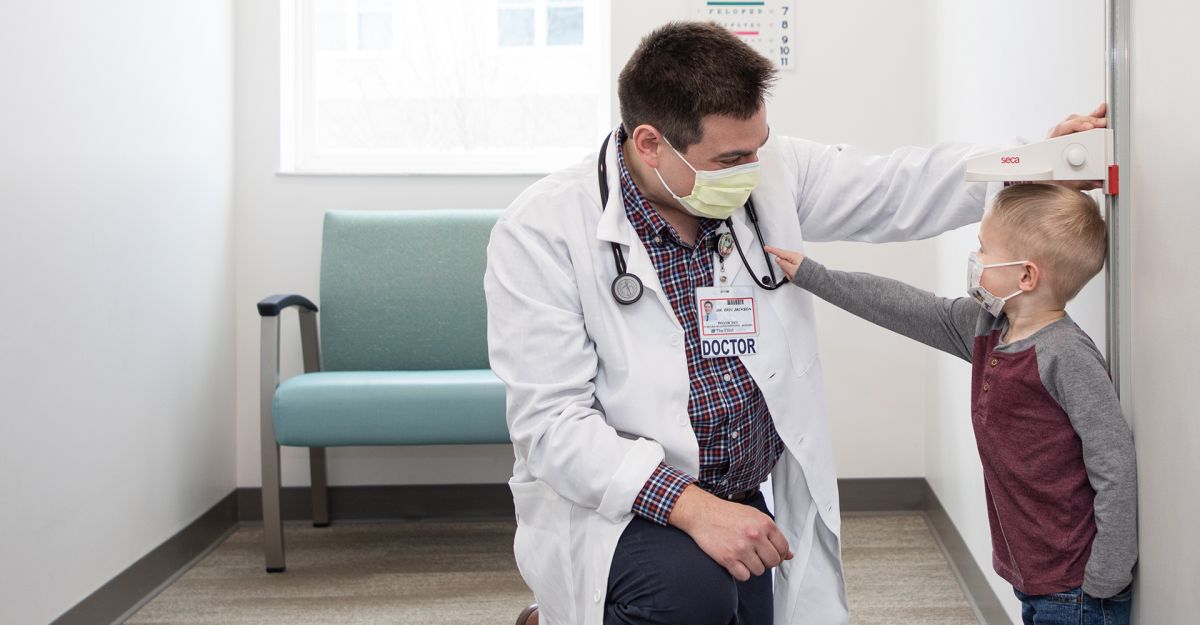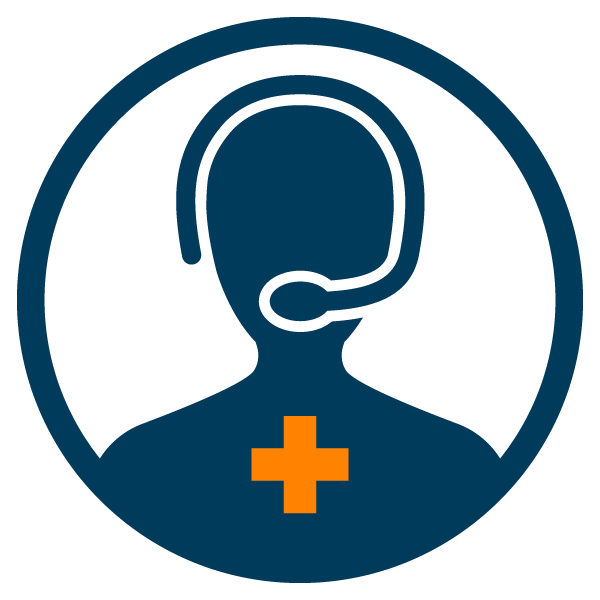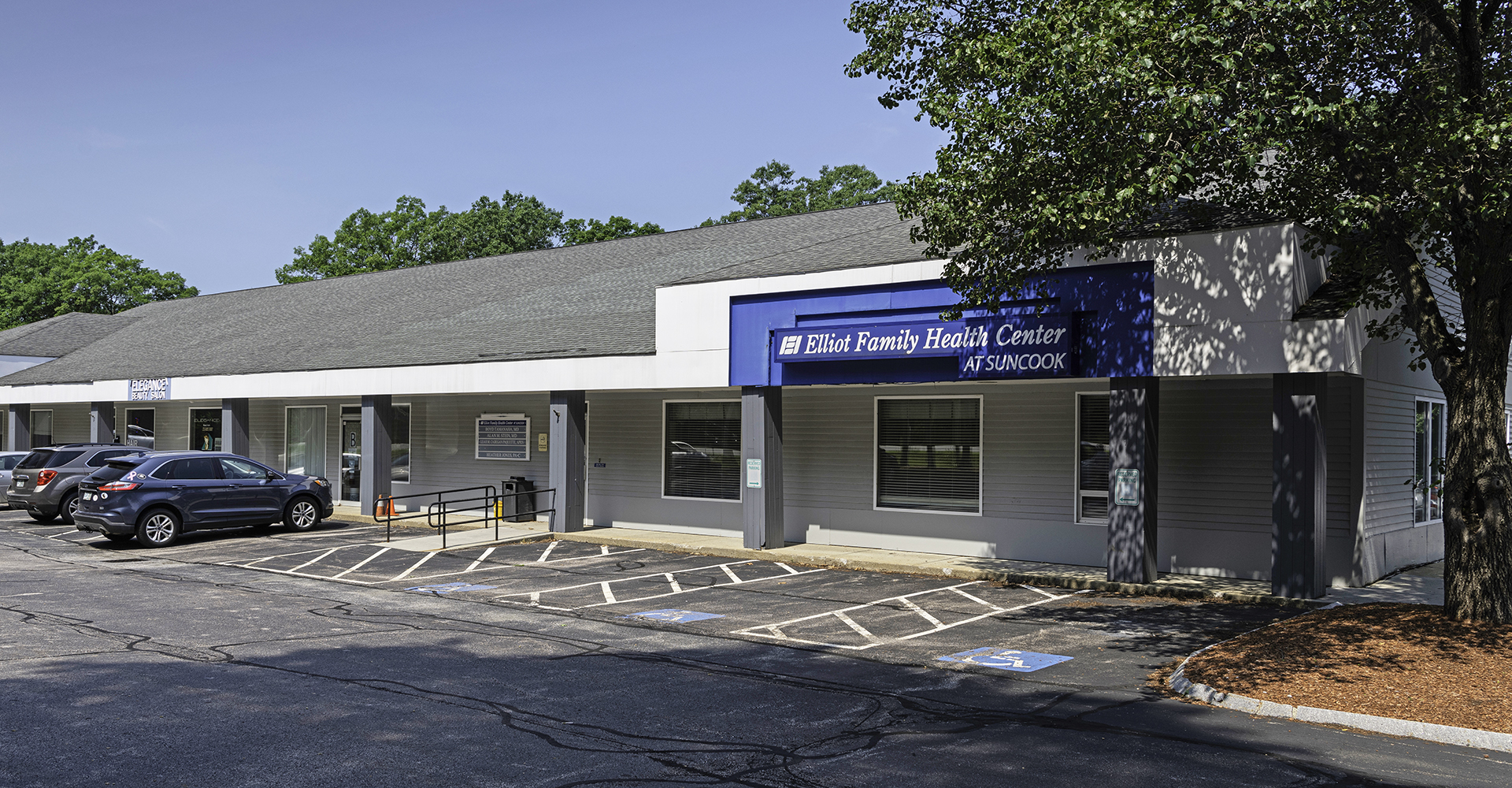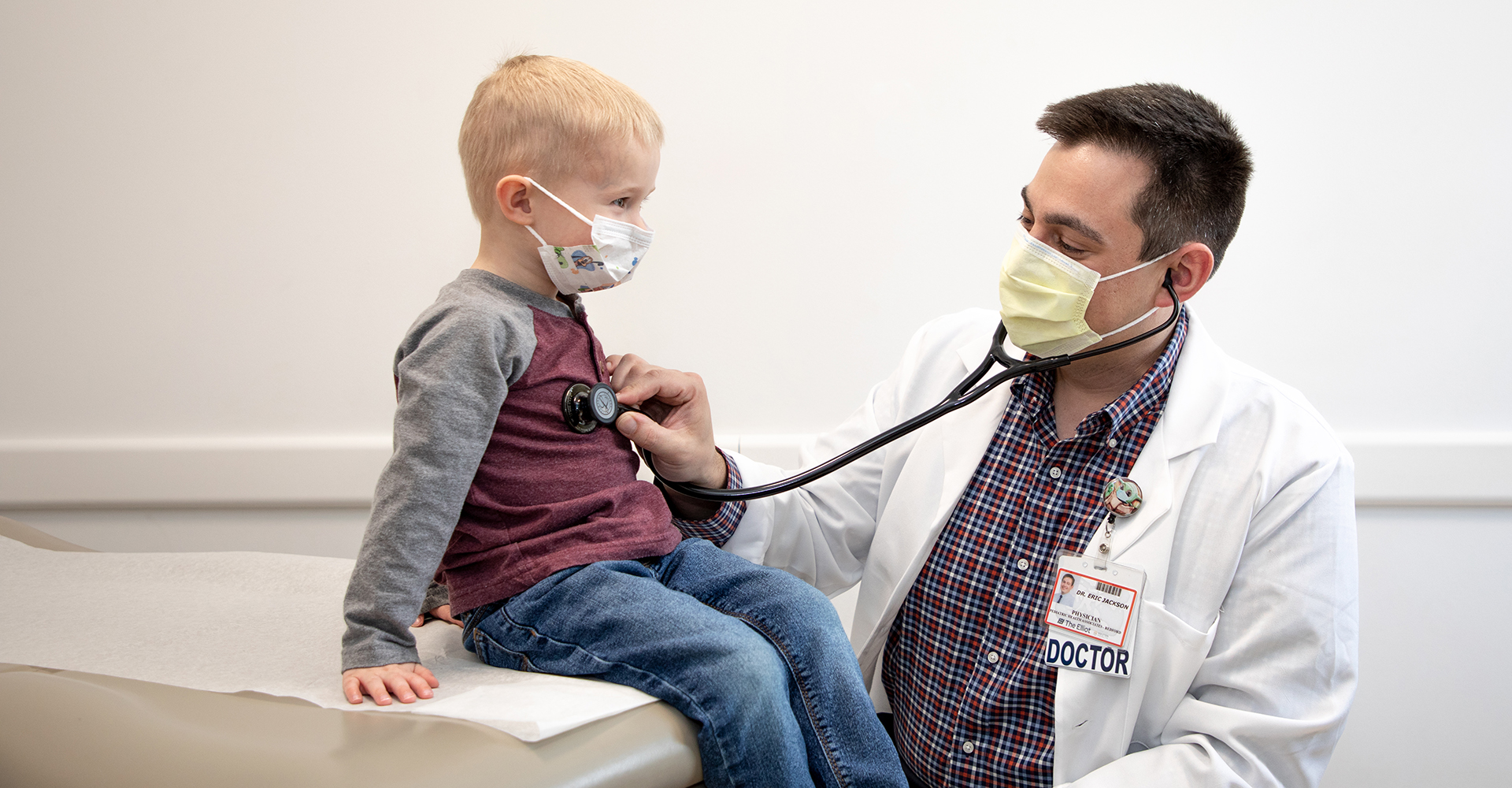Pediatrics
Our pediatric specialists are experienced in tackling the varied, and sometimes complicated, medical, emotional and developmental needs of children of all ages.

Our pediatric specialists are experienced in tackling the varied, and sometimes complicated, medical, emotional and developmental needs of children of all ages.
At Elliot Hospital, children are a top priority. Highly regarded for being at the forefront of pediatric medicine in New Hampshire, we have a dedicated Pediatric Emergency Department, a Level III Neonatal Intensive Care Unit (NICU), an expert interdisciplinary team of medical professionals and an array of specialized pediatric medical and surgical services.

Looking for a new provider? Elliot Provider Match offers a quick and easy way to connect with expert primary care providers near you. Our team will help find a PCP who meets your and/or your family’s unique needs. Call our team at 603-663-4567, Monday-Friday 8 a.m. – 5 p.m.
At The Elliot, we provide comprehensive pediatric primary care service that is uniquely tailored to the needs of your children and family. Our extensive network focuses on fostering healthy living and expertly handling serious illnesses when they arise. As dedicated pediatricians, we are always there for you, ensuring that you get the care you need, exactly when and where you need it.
Rely on the only dedicated Pediatric Emergency Department in New Hampshire here at Elliot Hospital when needs arise.
From a Level III NICU, to a dedicated Pediatric/Adolescent unit and dedicated Pediatric Emergency Room, kids are treated special.
Our specialized pediatric surgeons, anesthesiologists and nurses provide your child and your family with a comfortable, compassionate and secure environment before, during and after surgery.
When it’s time for imaging tests for your child, our pediatric and general radiologists, who are experts in the field, know how to choose what’s best to diagnose your child’s injury or disease. We work to ensure that we’re able to get the most information with the least amount of radiation and inconvenience for your child.
At Elliot’s Pediatric and Adolescent Care Unit, our Pediatric Audiology team of audiologists will provide your child with the latest in screening in our Level I Pediatric Audiology Diagnostic Center. We see children and infants.
Whether your child has an acute condition or a chronic illness, you can rely on our specialists for compassionate and exceptional care.
We recognize the challenge and complexities of treating neurological problems in children.
Elliot Pediatric Rehabilitation Services, a department of Elliot Health System, is a large, multi-disciplinary clinic offering physical, occupational, and speech therapy services focused on patients from 0-18 years of age.
The Department of Developmental-Behavioral Pediatrics provides consultations for children from birth through 12 years of age who have developmental challenges. Our experienced Developmental and Behavioral pediatricians will meet one-on-one with your child to assess any developmental challenges and to help promote optimal development.
Our dedicated Child Life Specialists and Music Therapist are committed to providing compassionate, family-centered care to help ease the stress and anxiety often associated with hospital visits for our youngest patients.

Elliot Family Medicine at Bedford
25 Leavy Drive
Bedford, NH 03110
603-472-7233
More Details

Elliot Family Medicine at Hooksett
20 Chambers Drive
Suite 1200
Hooksett, NH 03106
603-624-8652
More Details

Doctors Park Pediatrics
275 Mammoth Rd
Suite 1
Manchester, NH 03109
603-663-8350
More Details

Elliot Family Health Center at Suncook
50 Pinewood Rd
P.O. Box 9001
Allenstown, NH 03275
603-485-7861
More Details

Elliot Family Medicine at Manchester
130 Tarrytown Road
Manchester, NH 03103
603-626-5113
More Details

Elliot Family Medicine at Windham
5 Industrial Drive
Suite B
Windham, NH 03087
603-894-0063
More Details

Elliot Pediatrics and Primary Care at Raymond
15 Freetown Road
Raymond Shopping Center
Raymond, NH 03077
603-895-8000
More Details

Elliot Pediatrics and Primary Care at Riverside
20 Chambers Drive
Suite 2200
Hooksett, NH 03106
603-641-5386
More Details

Elliot Pediatrics at Bedford
25 Leavy Drive
Bedford, NH 03110
603-472-5860
More Details

Elliot Pediatrics at Windham
5 Industrial Drive
Unit B
Windham, NH 03087
603-685-0150
More Details

Elliot Pediatrics at Manchester
275 Mammoth Road
Suite 1
Manchester, NH 03109
603-663-8350
More Details

Elliot Pediatrics at Londonderry
25 Buttrick Rd
Building E
Londonderry, NH 03053
603-437-1003
More Details

Elliot Developmental/Behavioral Pediatrics
275 Mammoth Road
Suite 1
Manchester, NH 03109
603-663-3222
More Details